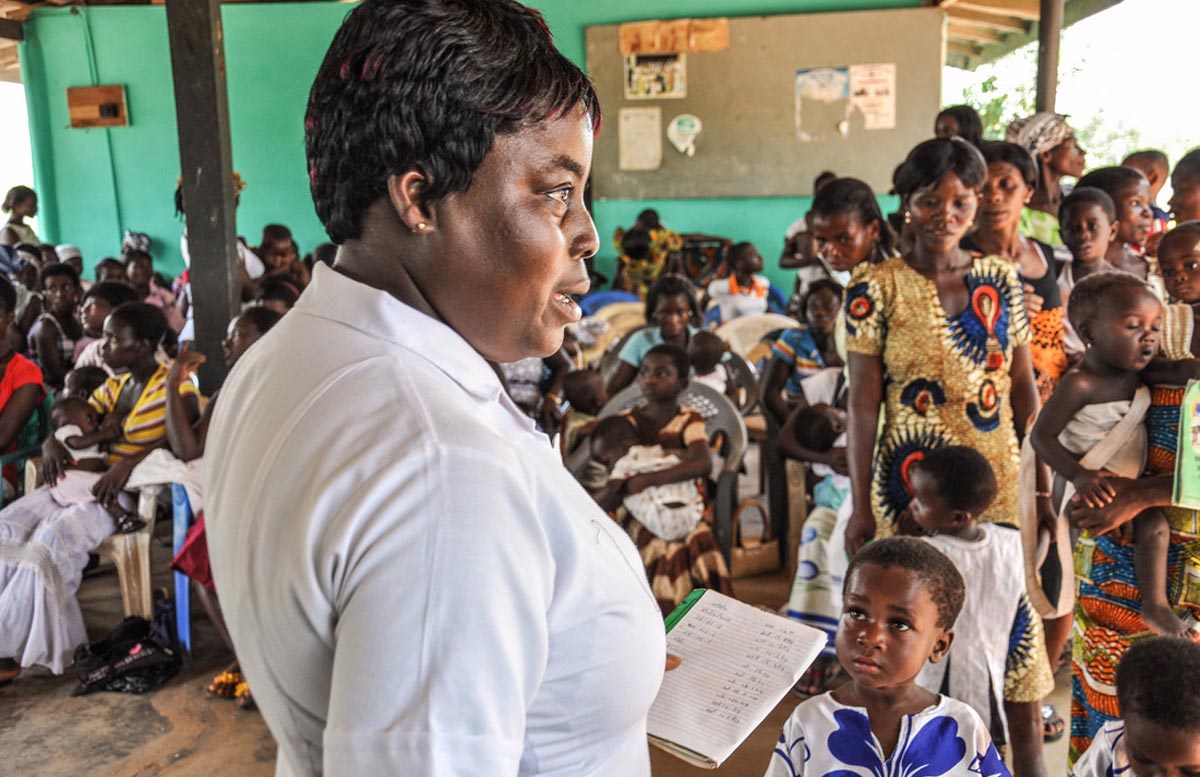Geneva, 21 March 2020 – With the COVID-19 pandemic already affecting 47 Gavi-supported countries, Gavi, the Vaccine Alliance has already taken new steps to help strengthen the preparedness of health systems in lower-income countries with the full support of its Board.
Gavi will also be working closely with WHO, CEPI, World Bank, UNICEF and other partners to create the optimal conditions for the acceleration of priority candidate vaccines with a focus on access including assuring adequate scale up of production and delivery to be sure the vaccine gets to where it is needed to stem the pandemic.
“We have already seen the impact COVID-19 can have on health systems in wealthier countries; in countries with already fragile health systems it could be catastrophic,” said Dr Ngozi Okonjo-Iweala, Chair of the Gavi Board during a meeting on Thursday. “As has become brutally clear in recent months, this disease doesn’t respect borders, which is why it will take a truly global response to defeat it. Gavi is making funding immediately available for lower-income countries to respond to the crisis. Routine immunisation against other deadly diseases like measles, polio, yellow fever and diphtheria also must continue – we cannot have two global outbreaks on our hands.”
Under the new measures, countries that qualify for Gavi support will be able to quickly reallocate up to 10% of grants extended to them under Gavi’s health system and immunisation strengthening programme to respond to the threat posed by COVID-19. This would allow countries to fill critical gaps in areas such as hygiene and infection control training for health workers, infection control supplies, surveillance and laboratory testing whilst they wait for specific funds being allocated by the global community for the COVID response. Gavi is exploring providing additional flexibility on reallocation of funds.
Currently, 21 countries have expressed an interest in reallocating resources under this initiative. As a priority, Gavi will work with countries to try and mitigate any risk COVID-19 poses to routine immunisation programmes in the countries that it supports. By allowing funding to be reallocated towards meeting the threat of COVID-19, Gavi is helping countries to reduce the overall burden of the pandemic on their health systems. This aims to reduce the risk that routine immunisations will be disrupted, leading to even more unnecessary loss of life and strain on the health system.
In addition to strengthening health systems, the Gavi Board reinforced that the organisation collaborate with Alliance members to create the optimal conditions for the identification of priority candidate vaccines with a focus on access. Board members also expressed support for the use of Gavi’s innovative financing instruments, such as its International Finance Facility for Immunisation (IFFIm) and Gavi’s Advance Market Commitment to accelerate vaccine development and access where needed. These mechanisms are live and ready to go having already proved their worth by providing billions of dollars in financing for vaccine scale up and delivery to 60% of the world’s children.
As well as working with international stakeholders and Alliance partners to accelerate and scale up vaccine development and delivery, Board members proposed adopting a country-led approach to start preparing now for deployment of a vaccine once one becomes available. These include working with Alliance partners to ensure availability and ultimately procurement of an adequate supply of vaccines for the world’s poorest countries thanks to Gavi’s market-shaping experience.
In reiterating support for Gavi’s third donor pledging conference to be hosted by the UK government on 3-4 June 2020 to mobilise at least US$ 7.4 billion in additional resources to protect the next generation with vaccines, Board members also challenged Gavi to find new ways of using its platform to assist in finding a solution to the most serious public health crisis in a lifetime.
“Though a COVID-19 vaccine is at least 18 months away, we need to start thinking now about how it will be scaled up and deployed,” said Dr Seth Berkley, Gavi CEO. “Demand for any vaccine is likely to be so high so unless we plan ahead there is a real risk it ends up in the hands of just a few countries. If this happens, it is a recipe for disaster, ensuring the disease continues to circulate globally well after a means of stopping it is developed. That is why we will be urgently exploring mechanisms and incentives to ensure vaccines are available to the most vulnerable, no matter where they live.”
Gavi’s engagement in the global response to COVID-19 is consistent with a commitment made by the G7 group of nations on March 16 to, “support the launch of joint research projects funded by both public and private resources, and the sharing of facilities, towards rapid development, manufacture and distribution of treatments and a vaccine, adhering to the principles of efficacy, safety, and accessibility.” The G7 leaders’ statement, in affirming its support for WHO’s leadership in tackling disease outbreaks and emergencies, also called for “no geographical vacuum” to be allowed in the global effort for preparedness and response.

